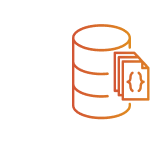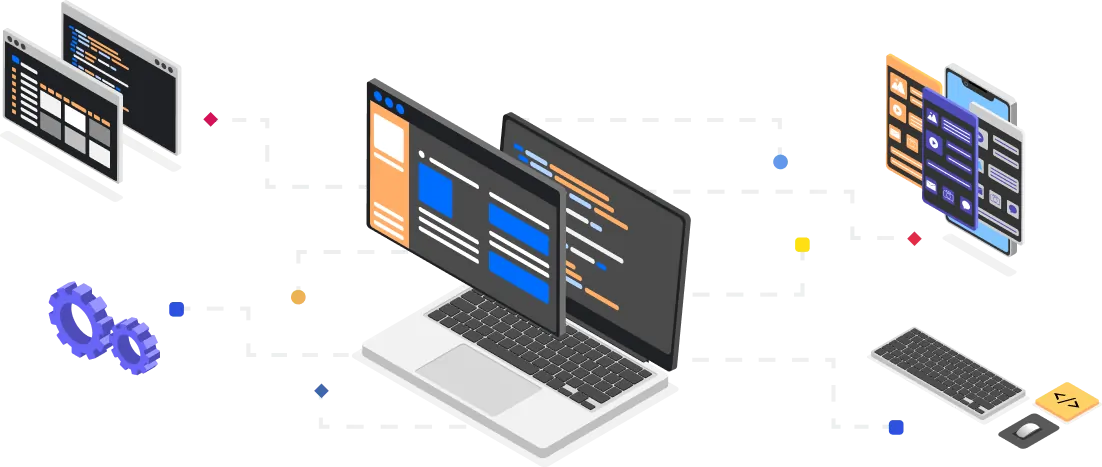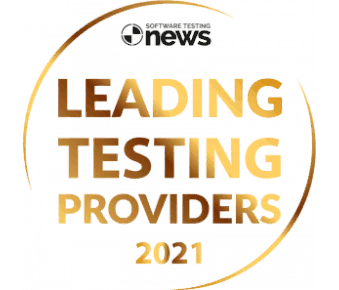Integration testing services
Strengthen your integrations. Secure your success with integration testing services.
Improve system reliability with DeviQA’s 15 years of integration testing experience, identifying and resolving complex integration issues early in the development cycle.
Trusted by
Our solutions for your integration testing challenges
We understand the complexities of integration testing and address them efficiently. Our seasoned team of QA experts leverages innovative testing methodologies and state-of-the-art tools to ensure the seamless integration of your software components.

Types of integration testing we perform

Our expert team of testers specializes in all integration testing types, each of which aims to protect your software from glitches, ensuring its flawless work.
Top-down integration testing
We begin by testing the highest-level modules and gradually proceed to lower-level ones. This method helps early identify issues in critical functionalities, ensuring a robust and error-resistant software structure.
Bottom-up integration testing
In this case, we take the opposite approach by starting with testing low-level modules and gradually progressing to the high-level ones. Therefore, we can pinpoint and rectify potential issues at the grassroots level, contributing to a reliable and resilient software foundation.
Mixed/sandwich integration testing
We blend the positive sides of both top-down and bottom-up approaches to create a comprehensive testing strategy. This hybrid method is particularly effective in uncovering intricate inter-module dependencies and ensuring a harmonious integration of components.
Big-bang integration testing
We test all modules simultaneously after their development, which allows us to assess the operation of a whole system. Our efficient and meticulous testing protocols ensure that no detail is overlooked during this grand convergence.
Incremental integration testing
We rigorously test that every new addition seamlessly aligns with the existing system. This method not only fosters continuous feedback but also minimizes the risk of systemic failures.

Choose your cooperation model

We understand that every project is unique, which is why we provide various cooperation models to cater to different needs. Check them and choose the one that best fits your requirements:
Staff augmentation
With staff augmentation, you can integrate our QA experts into your existing QA team to complement your resources.
Best Option For: Projects with fluctuating testing needs or those requiring specific skills for short- or medium-term engagements.
Easily scale your testing capabilities up or down based on project requirements, optimizing resource allocation.
Quickly onboard skilled integration testing professionals to reinforce your team.
Avoid the expenses associated with full-time employment while still accessing top-tier talent.
Dedicated team
A dedicated QA team tackles all QA-related issues, providing undivided attention and expertise throughout the project lifecycle.
Best option for: projects with long-term testing needs or those requiring a high level of customization and collaboration.
Quickly bring in a QA team with the skill sets required for your project.
Manage your dedicated QA team directly by taking control of task prioritization, task allocation, and timelines.
Enjoy the quick integration of your dedicated team and its close collaboration with your in-house teams.
Outsourcing
From test strategy design to test execution and reporting, we handle all aspects of software testing, allowing you to focus on core business activities.
Best option for: businesses looking to delegate the entire testing process, especially those seeking maximum efficiency and cost-effectiveness.
Eliminate the need for in-house infrastructure, staffing, and training, reducing your costs.
Access a rich pool of QA specialists with extensive experience across various domains, technologies, and testing types.
Entrust software testing to external experts, improving overall efficiency and productivity.
DeviQA’s AI advantage
At DeviQA, we use AI to make testing smarter and simpler. Our ecosystem is built to deliver faster, smarter, and more cost-efficient results — so your team can do more in less time.
DeviQA AI ecosystem

AI-powered IDE assistant
Reduces test script writing time

QA companion
Provides suggestions for test optimization and addresses gaps

Automated code review
Flags unused variables, improper loops, and other common errors

AI for API testing in Postman
Streamlines API test case creation and response validation
Features
Test case creation
Code review
Exploratory planning
Log analysis
Testing time spent
without AI
6 hrs
3 hrs
2 hrs
2 hrs
Testing time spent
with DeviQA AI
4 hrs (30% saved)
2 hrs (40% saved)
45 min (60% saved)
1 hr (50% saved)
Our approach to integration testing

Comprehensive analysis
We start by conducting a thorough analysis of your system architecture and integration points in order to gain a deep understanding of the interdependencies among various components.
Test planning
Based on our analysis, we develop a tailored integration testing strategy that outlines the scope, objectives, and methodologies to be employed throughout the testing process.
Environment setup
We set up a dedicated testing environment that mirrors the production environment as closely as possible, ensuring realistic testing scenarios and accurate results.
Test case design
Our experienced testing team creates detailed test cases that cover all integration points, data exchanges, and potential edge cases to validate the seamless communication between system modules. If test automation is relevant to a project, we also create corresponding test scripts.
Test execution and monitoring
We execute the test cases using industry-leading tools and frameworks, continuously monitoring the interactions between integrated components for any anomalies or failures.
Issue identification and tracking
Any discrepancies or defects identified during testing are meticulously documented, tracked, and communicated to a development team for timely resolution.
Regression testing
We perform regression testing to ensure that integration changes do not adversely impact existing functionalities, maintaining the overall stability of your system.
Validation and reporting
Once testing is complete, we validate the integration points against predefined acceptance criteria and generate comprehensive reports detailing test results, findings, and recommendations for improvement.
Continuous improvement
We believe in continuous learning and improvement. Feedback from each testing cycle is carefully analyzed, and our testing processes are refined to deliver even greater efficiency and effectiveness in subsequent iterations.
What you get
Feel the improvement in
3 days
Reduction in your costs
60%
Accelerate development by
30%
Automation faster in parallel by
56x
Increase test coverage to
95%

We serve

Our expertise and resources allow us to cover the unique needs of each project, ensuring the delivery of high-quality software that meets users’ requirements and business goals.
Book a call to bridge the gaps and ensure seamless communication between applications
Here’s what people are saying
about DeviQA
QA tools & platforms we hold expertise in
Playwright
Cypress
Cucumber
Selenium
Appium
Mocha
Robot Framework
SpecFlow
TestNG
WebdriverIO

Selenide
Calabash

Watir
Codeception

HCL AppScan

Nessus

NMAP
BurpSuite

Acunetix

OWASP ZAP

Metasploit
Wireshark

DBeaver

Rdp-Sec-Check

SNMPCHECK

AiR

SSLSCAN
k6

JMeter

Load Runner

Visual Studio

Rest API

GraphQL

Apiary

Bluetooth Low Energy API

Apple Pay

Google Pay
Apple Maps
Fingerprint API

Postman
Swagger

Charles Proxy

Ready API

ACCELQ

Katalon Platform

REST-Assured

SQL Server

MySQL

Oracle

PostgreSQL

Cassandra

MongoDB

RethinkDB

Amazon S3

Redshift

DynamoDB

Amazon RDS

DocumentDB

Amplify

Lambda
Amazon EC2

Elasticache

Azure Datalake

Blob Storage

CosmosDB

SQL Database

Synapse Analytics
Google Cloud SQL

Google Cloud Datastore

Awards and recognitions

Collaboration process overview
Initial contact
During our initial call, we aim to understand your testing requirements and goals
Assessment
We evaluate your current testing process and create a tailored plan to enhance it
Proof of concept
We offer a complimentary proof of concept, allowing you to experience our proficiency and expertise
Trial and evaluation of performance
We start a trial period with you, and once complete, we review the results together and discuss options
Contract signing and full-scale QA implementation
Upon mutual agreement, we move forward with the QA process by signing a contract and beginning work
Partnership with flexibility
Our engagement options give you commercial flexibility to dial up and dial down resources depending on your own needs

Let’s schedule a call
Flexible collaboration options allow you to choose the level of support that best meets your needs
Questions & answers

Why is integration testing important?
It helps detect issues at the data exchange or service communication level—ensuring your software works as a complete, interconnected system.
Do you test third-party API integrations?
Yes. We test REST and SOAP APIs, payment gateways, authentication providers, and other third-party services to ensure secure and reliable integration.
What tools do you use for integration QA?
We use Postman, REST Assured, SoapUI, JUnit, and custom CI/CD tools to automate and monitor integration testing workflows.
How is integration testing different from system testing?
Integration testing focuses on interactions between modules or services, while system testing checks the behavior of the entire application as a whole.
Can integration tests be automated?
Yes. We automate integration tests to run within your CI/CD pipeline, enabling fast feedback and early defect detection across services.
Why choose DeviQA as your integration testing company?
DeviQA brings 14+ years of QA expertise and robust frameworks to test integrations, reduce release risks, and ensure seamless cross-system communication.




























